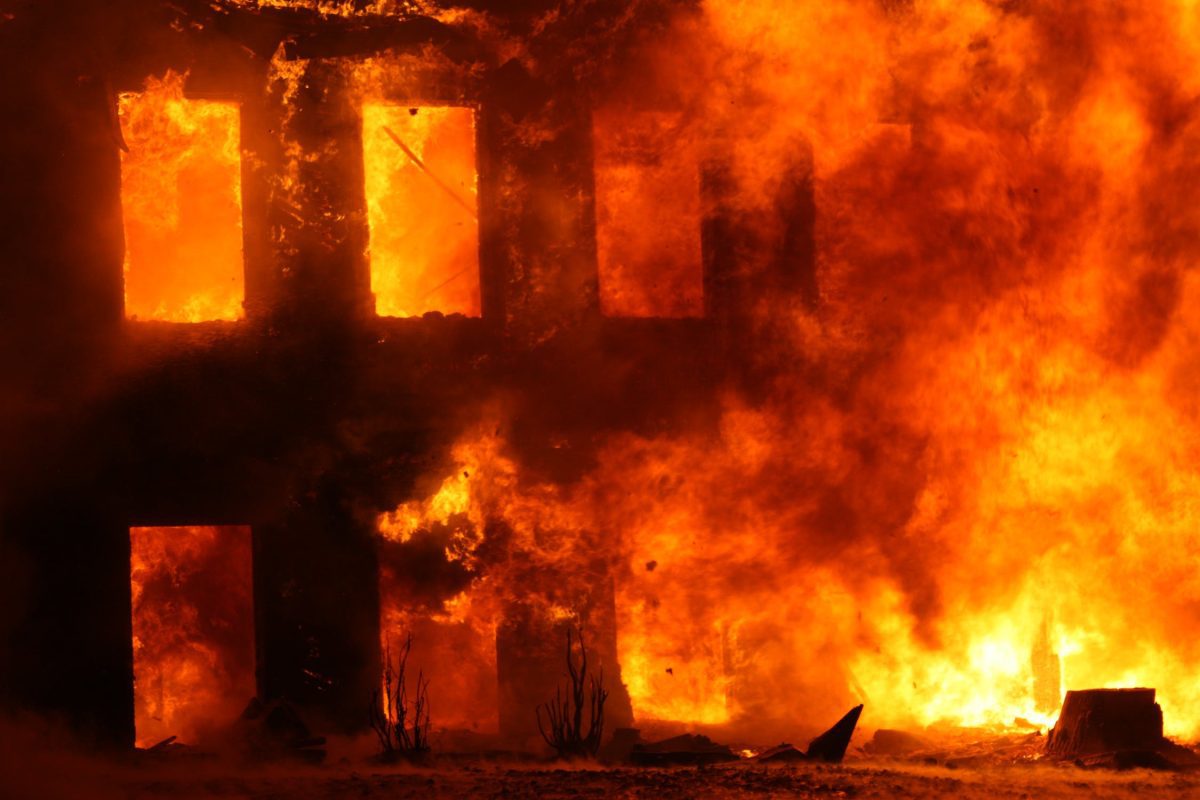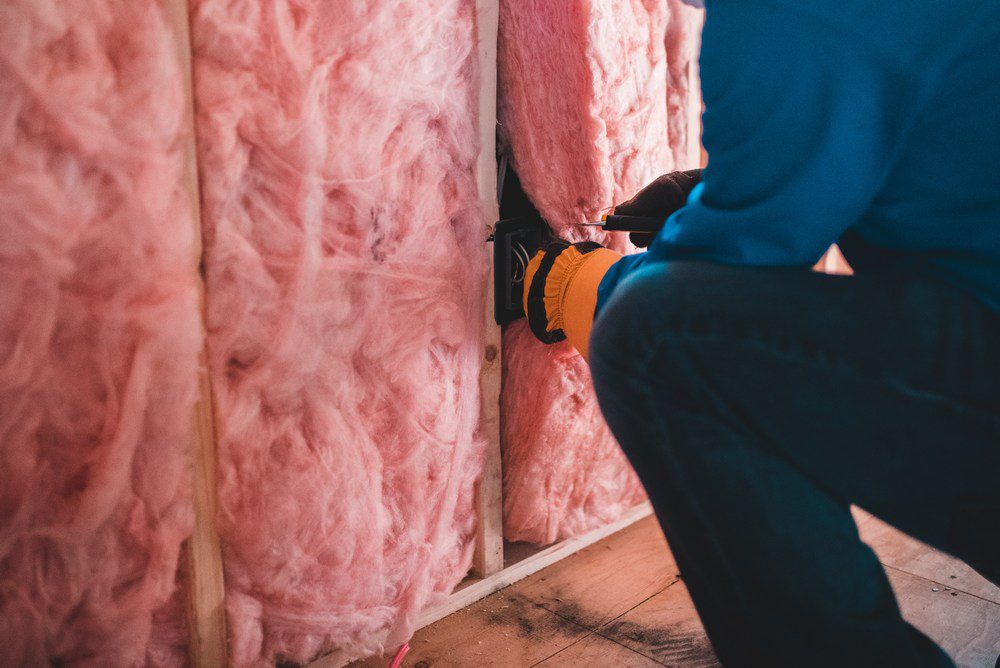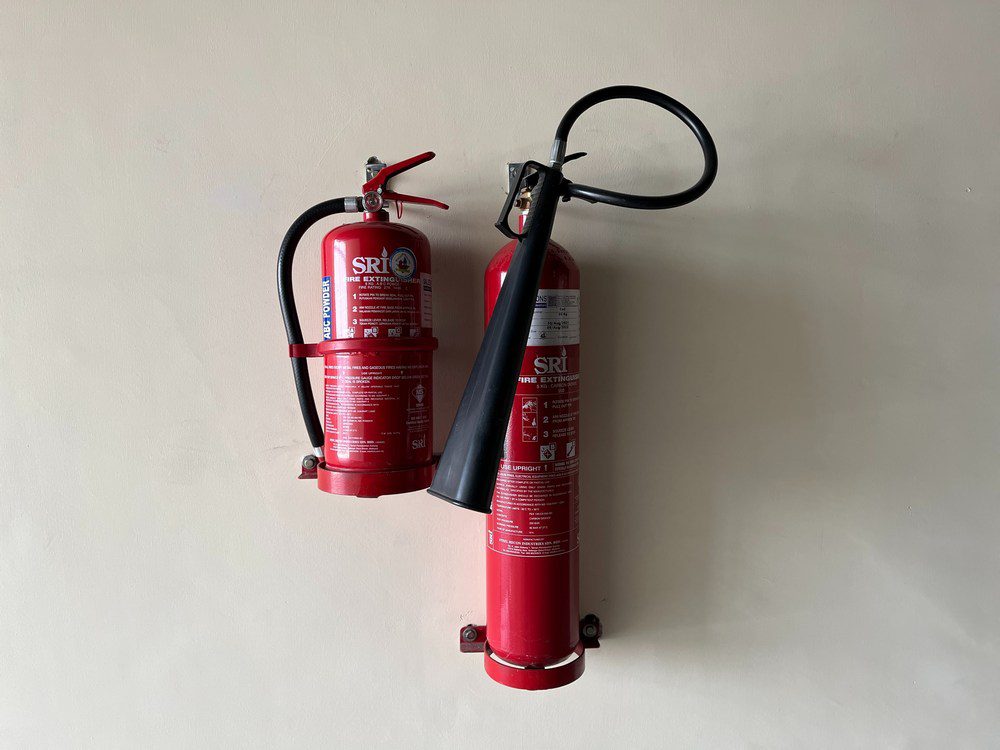Last Updated on October 22, 2025 by teamobn

Fires happen when you least expect them, and they are a common phenomenon in the US. According to data from the U.S. Fire Administration, 1,311 house fires were reported between Jan 1 and Aug 8, 2023.
The best way to ensure your home is fire-safe is to take the necessary precautions before they occur. By implementing these simple measures and following the tips outlined in this article, you can ensure your family stays safe from fires.
While this guide focuses on emergency response and slowing spread, the best defense is prevention—read our fire prevention strategies and maintenance tips.
Contents
Understanding the Science of Fire Spread
In order to effectively prevent the spread of fires, it is crucial to comprehend the underlying science behind their expansion. Fires have the ability to spread rapidly, at an astonishing rate of 300 meters per minute, leaving us with only a limited window of time to respond.
It’s also worth noting that fire spreads by convection and radiation. Radiation is most efficient at transferring heat. Therefore, this method is responsible for most fires spreading quickly. You must understand how these two methods work together if you want to put out any potential flames before they become an inferno.
Creating a Fire-Resistant Home Environment
Using fire-resistant building materials is essential to create a fire-resistant home environment. This includes:
Materials In The Walls
Plywood and sheetrock are both flammable. But plywood is less likely to catch fire than sheetrock. The reason behind this is that it doesn’t contain asbestos fibres that can burn at temperatures above 1,700 degrees Fahrenheit.

Insulation
Fiberglass insulation can melt at temperatures above 1,200 degrees Fahrenheit. If you have asbestos insulation in your attic or basement, consider replacing it with another type of insulation before installing new flooring.
Avoid using foam board under carpeting; opt for hardwood floors or rugs made from natural fibres like cotton. Hardwood flooring also increases the resale value of homes, making it an excellent option. After installing a hardwood floor, you can expect 70-80% ROI on your home.
Roof and Gutters
Regularly clean your roof and gutters to remove debris like leaves and twigs that could catch fire during a wildfire. Consider installing ember-resistant vents to prevent embers from entering your home through the attic.
Clearance and Landscaping
Trim trees and shrubs near your home to create a buffer zone. Prune lower branches and remove dead vegetation to prevent fire from spreading to your house.
Tips to Prevent Fire From Spreading
There are many ways to prevent fire from happening in the first place. For instance, you can use smoke detectors for early detection of possible fires and prevent them from happening. They can be beneficial, which can be seen in the growing demand. The global smoke detector market is growing at a CAGR of 8.2% till 2027.
But what if the fire has already flamed, and now all you can do is prevent it from spreading? Here are some tips that can help you prevent fire from spreading. This list also includes precautionary tips that will help prevent fires from spreading.
Use Access Control Electric Strike to Lock Doors
Using access control electric strikes to lock doors can indeed play a role in fire prevention and safety. Electric strikes are devices used in conjunction with electronic access control systems to lock and unlock doors remotely.
When appropriately integrated, access control electric strike systems can contribute to fire safety measures.
Here’s how they can do that:
- Controlled access
- Electric strikes allow you to control who enters and exits specific areas of a building.
- Thus, you can limit access to certain areas, preventing people from inadvertently spreading the fire to other building parts.
- Emergency Exit
- Electric strikes can secure doors but can also be set up to allow for emergency egress.
- This ensures that people can quickly and easily exit the building in case of a fire.
- Access control systems often have built-in mechanisms for releasing the locks during emergencies.
- Integration With Fire Alarms
- Modern access control systems can be integrated with fire alarm systems.
- The access control system can automatically release all locks when a fire alarm is triggered.
- That means all people can evacuate the building without hindrance. It can also lock the doors after evacuation to prevent fire spread.
- Managing fire becomes easier when the doors are locked, even for firefighters.
These electric strikes are tested across various regulations. According to The Flying Locksmiths, Underwriters Laboratories (UL) regulations are among the best for regulating which electric door strikes are safe. If the electric strikes pass these regulations, they are generally considered safe as they have a proven track record of fire safety.

Use Fire Extinguishers
Fire extinguishers are a handy tool to have in your home. They’re easy to use and can be the difference between life and death in an emergency. Fire extinguishers come in different sizes, but they all share the same basic components:
- A container that holds pressurized air
- A nozzle at one end of this container through which you release the contents of the fire extinguisher
- A gauge at another end of this container indicates how much pressure is left inside
The most common type of fire extinguisher is called “ABC.” This means it contains three different types of agents:
- A for ordinary combustibles like paper or wood
- B for flammable liquids like gasoline
- C for electrical fires
Keep an eye out for those letters when shopping around. You don’t want to buy anything else unless there’s no choice available locally where you live. Otherwise, just remember what goes into each one so when someone asks where yours went missing from under their sink cabinet door again.
Build With Fire-Resistant Materials
Fire-resistant materials are a great way to protect your home from fire. Fire-retardant insulation, paints, drywall, and other building materials are available at most hardware stores and online.
If you’re building an addition to your existing house or renovating an old one, consider using fire-resistant materials for your exterior walls. You may not want to replace every inch of drywall in your home. After all, it would cost a lot of money. But consider replacing any areas with a high risk for fire or where sparks could travel easily.
Compartmentalize Your Property
When building or renovating your home, it’s essential to ensure the space between rooms is appropriately categorized. This means that every room should be separated from the next by fire-resistant materials such as concrete walls and steel doors.
In addition, all windows should be made of tempered glass that won’t shatter when exposed to heat above 300 degrees Celsius.
If you don’t want to invest in new materials, you can still take steps toward improving its safety by keeping flammable items away. For example, if there’s a wooden bookshelf against one wall, move it over so it doesn’t catch fire quickly.
Leverage Fire Suppression Systems
Fire suppression systems are a great way to help protect your home against fire damage. Fire sprinklers are the most common fire suppression system and can be used in residential and commercial buildings. Thus, it is suggested to have it at home or if you have it already and it’s broken, make sure it undergoes fire sprinkler system repair for it to serve its purpose again. After all, it is helpful.
Another option is a dry chemical extinguisher, which works well for small fires. That’s because small fires don’t need immediate attention but could pose a hazard if left unchecked. These are among the highest-selling extinguishers and will likely account for 25% of consumption.
Suppose you have an industrial building, such as an office building or warehouse space, with lots of flammable materials stored inside it. In that case, your facility likely has a fire suppression system installed already.
Conclusion
The kitchen is one of the most critical rooms in your home. In addition to being where you prepare food, it’s also a place where you can be injured by fire. Suppose you have children or pets who spend time in this area.
In that case, it’s even more critical that everything be adequately secured so they don’t get hurt by accidental fires or burns.






